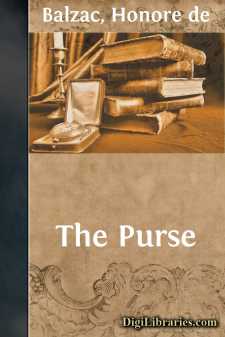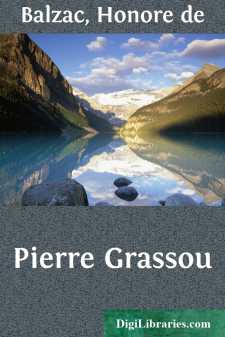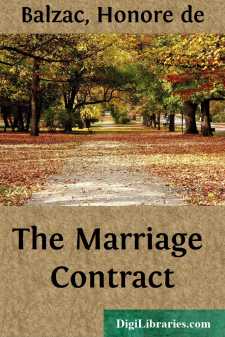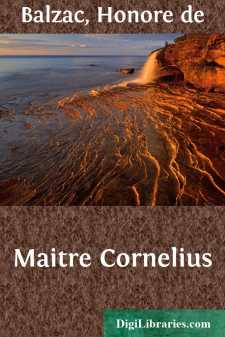Literary Collections
- American 84
- Ancient, Classical & Medieval 14
- Asian 1
- Australian & Oceanian 1
- Canadian 55
- Continental European 121
- English, Irish, Scottish, Welsh 179
- Essays 160
- General 24
- Letters 46
- Middle Eastern 1
Literary Collections Books
Sort by:
by:
Honore de Balzac
THE PURSE For souls to whom effusiveness is easy there is a delicious hour that falls when it is not yet night, but is no longer day; the twilight gleam throws softened lights or tricksy reflections on every object, and favors a dreamy mood which vaguely weds itself to the play of light and shade. The silence which generally prevails at that time makes it particularly dear to artists, who grow...
more...
by:
Honore de Balzac
A PASSION IN THE DESERT "The whole show is dreadful," she cried coming out of the menagerie of M. Martin. She had just been looking at that daring speculator "working with his hyena,"—to speak in the style of the programme. "By what means," she continued, "can he have tamed these animals to such a point as to be certain of their affection for——" "What seems to...
more...
by:
Honore de Balzac
MELMOTH RECONCILED There is a special variety of human nature obtained in the Social Kingdom by a process analogous to that of the gardener's craft in the Vegetable Kingdom, to wit, by the forcing-house—a species of hybrid which can be raised neither from seed nor from slips. This product is known as the Cashier, an anthropomorphous growth, watered by religious doctrine, trained up in fear of...
more...
by:
Honore de Balzac
THE MESSAGE I have always longed to tell a simple and true story, which should strike terror into two young lovers, and drive them to take refuge each in the other's heart, as two children cling together at the sight of a snake by a woodside. At the risk of spoiling my story and of being taken for a coxcomb, I state my intention at the outset. I myself played a part in this almost commonplace...
more...
by:
Honore de Balzac
I. THE LORRAINS At the dawn of an October day in 1827 a young fellow about sixteen years of age, whose clothing proclaimed what modern phraseology so insolently calls a proletary, was standing in a small square of Lower Provins. At that early hour he could examine without being observed the various houses surrounding the open space, which was oblong in form. The mills along the river were already...
more...
by:
Honore de Balzac
PIERRE GRASSOU Whenever you have gone to take a serious look at the exhibition of works of sculpture and painting, such as it has been since the revolution of 1830, have you not been seized by a sense of uneasiness, weariness, sadness, at the sight of those long and over-crowded galleries? Since 1830, the true Salon no longer exists. The Louvre has again been taken by assault,—this time by a populace...
more...
by:
Honore de Balzac
I In September, 1835, one of the richest heiresses of the faubourg Saint-Germain, Mademoiselle du Rouvre, the only daughter of the Marquis du Rouvre, married Comte Adam Mitgislas Laginski, a young Polish exile. We ask permission to write these Polish names as they are pronounced, to spare our readers the aspect of the fortifications of consonants by which the Slave language protects its...
more...
by:
Honore de Balzac
CHAPTER I. PRO AND CON Monsieur de Manerville, the father, was a worthy Norman gentleman, well known to the Marechael de Richelieu, who married him to one of the richest heiresses of Bordeaux in the days when the old duke reigned in Guienne as governor. The Norman then sold the estate he owned in Bessin, and became a Gascon, allured by the beauty of the chateau de Lanstrac, a delightful residence owned...
more...
by:
Honore de Balzac
CHAPTER I. A CHURCH SCENE OF THE FIFTEENTH CENTURY In 1479, on All Saints' day, the moment at which this history begins, vespers were ending in the cathedral of Tours. The archbishop Helie de Bourdeilles was rising from his seat to give the benediction himself to the faithful. The sermon had been long; darkness had fallen during the service, and in certain parts of the noble church (the towers of...
more...
by:
Honore de Balzac
A MAN OF BUSINESS The word lorette is a euphemism invented to describe the status of a personage, or a personage of a status, of which it is awkward to speak; the French Academie, in its modesty, having omitted to supply a definition out of regard for the age of its forty members. Whenever a new word comes to supply the place of an unwieldy circumlocution, its fortune is assured; the word lorette has...
more...











